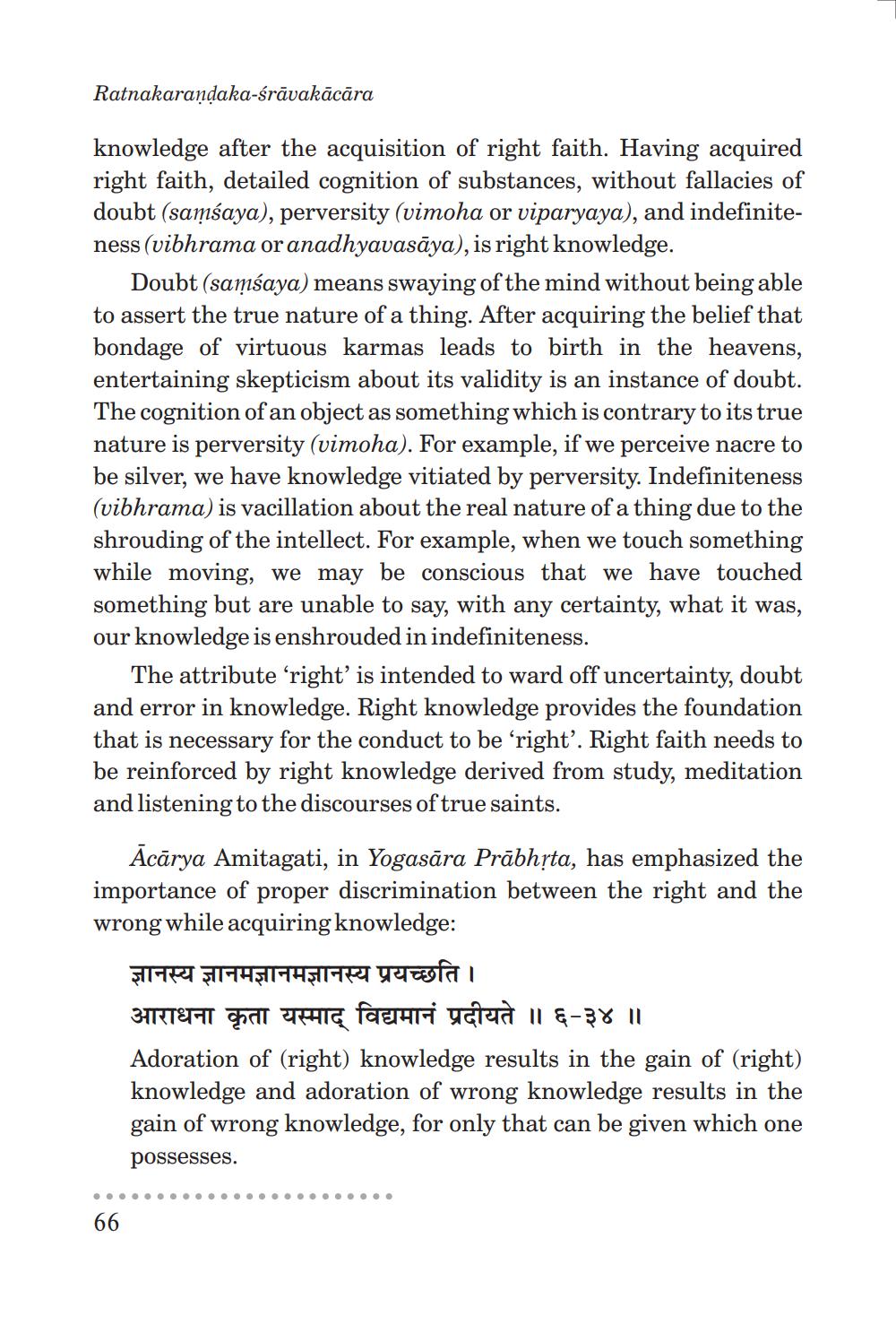________________
Ratnakarandaka-śrāvakācāra
knowledge after the acquisition of right faith. Having acquired right faith, detailed cognition of substances, without fallacies of doubt (samsaya), perversity (vimoha or viparyaya), and indefiniteness (vibhrama or anadhyavasāya), is right knowledge.
Doubt (samsaya) means swaying of the mind without being able to assert the true nature of a thing. After acquiring the belief that bondage of virtuous karmas leads to birth in the heavens, entertaining skepticism about its validity is an instance of doubt. The cognition of an object as something which is contrary to its true nature is perversity (vimoha). For example, if we perceive nacre to be silver, we have knowledge vitiated by perversity. Indefiniteness (vibhrama) is vacillation about the real nature of a thing due to the shrouding of the intellect. For example, when we touch something while moving, we may be conscious that we have touched something but are unable to say, with any certainty, what it was, our knowledge is enshrouded in indefiniteness.
The attribute 'right' is intended to ward off uncertainty, doubt and error in knowledge. Right knowledge provides the foundation that is necessary for the conduct to be 'right'. Right faith needs to be reinforced by right knowledge derived from study, meditation and listening to the discourses of true saints.
Acārya Amitagati, in Yogasāra Prābhịta, has emphasized the importance of proper discrimination between the right and the wrong while acquiring knowledge:
ज्ञानस्य ज्ञानमज्ञानमज्ञानस्य प्रयच्छति । आराधना कृता यस्माद् विद्यमानं प्रदीयते ॥ ६-३४ ॥ Adoration of (right) knowledge results in the gain of (right) knowledge and adoration of wrong knowledge results in the gain of wrong knowledge, for only that can be given which one possesses.
........................
66




